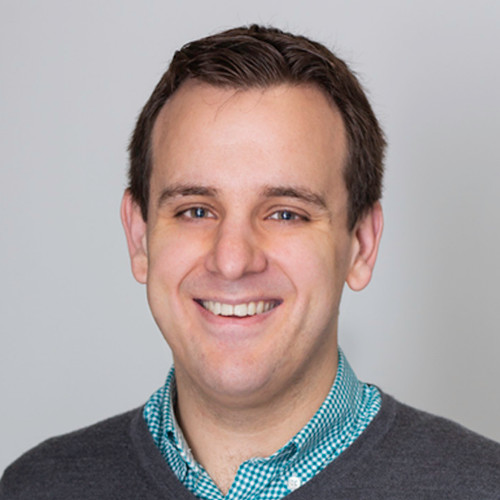I’m not a DC or Marvel guy – I appreciate both superhero stables equally. But lately, even I’ve gotta admit that DC Studios‘ adaptations are outdoing Marvel Studios’ in one key area: villains.
Specifically, DC isn’t afraid to it have its baddies be, well… bad. Even big screen blockbuster The Joker and prestige miniseries The Penguin avoid the temptation to frame the legendary Bat-foes that head them up as bonafide heroes. Do these productions help us understand where Arthur Fleck and Oz Cobb’s antisocial behavior comes from? Sure. Do we sympathise with them, even root for them to win at the end? Absolutely. But we’re never in any doubt as to either character’s moral alignment. There’s no redemption arc for these nefarious folks (and they wouldn’t want one).
By contrast, Marvel is allergic to villainous protagonists. Loki wrapped up by reforming its titular, self-styled God of Evil once and for all. New Disney+ series Agatha All Along seems poised to similarly rehabilitate hitherto gleefully wicked witch Agatha Harkness. The result is less nuanced, less satisfying storytelling, that tips the scale in DC Studios’ favor. Which begs the question: why does DC embrace villains and Marvel shun them?
DC and Marvel Are Targeting Different Audiences

The big DC/Marvel divide on villains comes down their respective target audiences. While both studios cast as wide a net as possible overall, generally, DC Studios’ fare tends to skew older. True, they release pretty of kid-oriented stuff. The likes of My Adventures with Superman and DC League of Super-Pets are both aimed squarely at tykes. James Gunn’s upcoming Superman reboot will almost certainly play to children as well as grown-ups. But DC also has (and will seemingly continue to have) a strong tradition of catering heavily to more mature tastes. Aside from The Penguin, there’s adult animated comedy Harley Quinn, Max series Peacemaker, and the aforementioned Joker‘s sequel, Folie à Deux. None of these projects are appropriate for kids, so they can have morally ambiguous – if not outright malevolent – lead characters. Adult viewers can handle it.
Related: The Penguin: What’s the Deal with Sofia Falcone’s Neck Scratches?
The same doesn’t apply for Marvel Studios’ overall slate. True, the production company has made an effort to stretch beyond its PG-13 comfort zone in recent years. Deadpool & Wolverine rocked the studio’s first R-rating. Halloween-themed special Werewolf by Night and gritty miniseries Echo likewise pushed the envelope, in terms of their tone and more graphic violence. All signs point to upcoming projects Daredevil: Born Again and Blade (if it ever actually arrives) following suit. And there are a handful of orphaned-in Marvel efforts – notably, Hit-Monkey – that definitely aren’t fit for young eyes. But, for the time being, these are outliers. The vast majority of MCU movies and shows are more or less family-friendly outings. So, having an unrepentantly murderous Loki or a gang leader Maya Lopez as our heroes? Nu-uh, not happening
This Isn’t Just a Marvel Problem – It’s a Disney Problem
In fairness, this isn’t entirely Marvel’s fault. The studio’s parent company, Disney, doesn’t seem all that comfortable with ethically dubious leads in its “all-ages” franchises, either. Take the House of Mouse’s other big property, Star Wars. It’s suffered the same de-vilification problem relatively recently, in much-maligned miniseries The Book of Boba Fett. Here, Boba Fett traded bounty hunting for being a provincial crime boss; so far, so good – or rather, bad – right? Nope, because Fett was a crime boss who hated committing crimes! The Book of Boba Fett took the “honorable gangster” trope to ridiculous extremes, resulting in a toothless revamp of one of a galaxy far, far away’s most iconic underworld figures.
Related: Is Agatha All Along Setting Up Mephisto’s MCU Arrival?
Why would Disney give its subsidiary (and Star Wars rightsholder) Lucasfilm the green light for this? Two likely reasons. For one thing, it’s hard to sell lunch boxes with shady bounty hunters on them – especially when said bounty hunters are, essentially, space Nazi collaborators (dude worked for the Empire, y’all). This ties into Disney’s bigger concern: avoiding controversy. Putting forward a character like Boba Fett as someone for junior fans to look up to without tweaking his classic, not-so-savoury characterization risks parental backlash. So, from Disney execs’ perspective, it’s better to gloss over all that unpleasantness and get back to shifting lunch boxes. It’s corporate, it’s cynical – and it’s also show business.
Will Agatha All Along Change Marvel’s Approach to Villainous Protagonists?

But does that mean there’s no possibility of us ever getting an anti-hero (or worse) as an MCU lead? Not necessarily. There’s still a chance Marvel won’t go soft on Agatha Harkness’s characterization in Agatha All Along. All sorts of dark rumors swirl around Agatha in the limited series’ first four episodes, and if any of this chatter proves accurate – particularly the stuff about her son – it will be virtually impossible for Marvel to roll back her baddie status. But let’s be honest: odds are that by the time we reach Agatha All Along‘s series finale, we’ll learn that none of the horror stories about Agatha’s past are true, that’s she’s really a terribly misunderstood creature, and that she isn’t that bad after all. Sadly, we’ll probably have to wait a little while longer for our first true, unwaveringly villainous MCU protagonist. And until that happens, DC will have the edge over Marvel – in this one area, at least.
Agatha All Along is currently streaming on Disney+, while new episodes of The Penguin are available on HBO and Max.






Published: Oct 5, 2024 06:00 pm